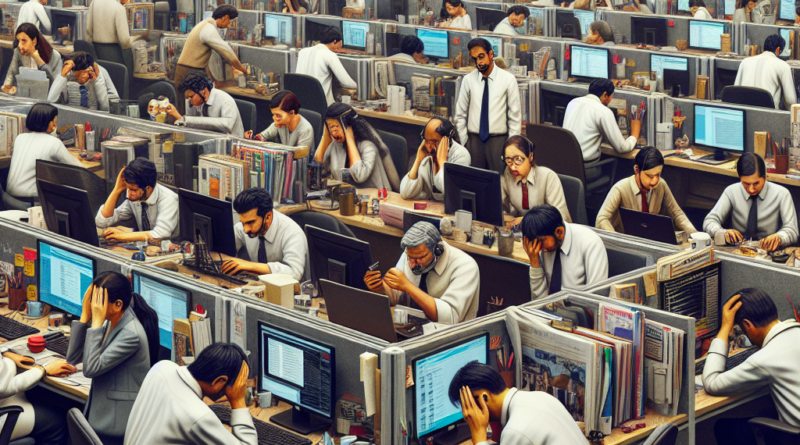The Impact of Toxic Work Culture in Asia
The Toxic Culture of Overwork in Asian Countries
Working, working, working.
Without a moment’s rest, without a breath, without being able to plan one’s own existence.
Putting the company’s results above everything else.
The toxic work culture is present on every continent and at every latitude.
In Asia, however, it is more pervasive than elsewhere.
The latest episode that shed light on this socio-economic problem involved a “tiger manager” at Baidu, the leading Chinese search engine.
Qu Jing, the company’s vice president, was fired in China for triggering a “public relations crisis.”
Specifically, Miss Qu was captured in various videos – then widely circulated online and gone viral – where she is seen adopting a dictatorial management style with her subordinates.
In one clip, the manager shouts at a colleague, dealing with a personal issue, for not being a relative and only caring about results.
In another video, Qu criticizes her subordinates for not wanting to work on weekends, while in yet another clip, she dismisses a complaint from an employee bothered by late-night work messages.
Baidu fired the woman, admitting that the company has its internal problems – including pressures for employees to work overtime – but also insisting that it will continue to improve.
The Toxic Work Culture
Stories like this are not too rare in some Asian countries.
In China, for example, Generation Z workers are increasingly moving away from the “hard work at the workplace” culture rooted in the nation for years.
In 2019, for instance, Alibaba’s co-founder, Jack Ma, stated that it was a “blessing” for anyone to be part of the so-called “996 work culture,” where people work from 9:00 to 21:00, six days a week.
In 2021, however, the Chinese Supreme Court and the Ministry of Labor issued a statement to highlight the numerous gray areas in many companies in the country: “Legally, workers are entitled to adequate compensation and rest or vacation periods.
Respecting the national working hours is an obligation of employers.”
According to Chinese labor laws, a standard workday lasts eight hours, with a maximum of 44 hours per week.
Any work beyond this requires extra pay for overtime.
A shock, if it can be defined as such, came in 2021.
Earlier that year, two employees of the e-commerce platform Pinduoduo died weeks apart: a young worker collapsed while returning home after working long hours, while another committed suicide.
A food delivery driver set himself on fire after allegedly being denied $770 in back pay (all just a month after another worker died while delivering meals for the online platform Ele.me).
From that moment on, authorities began to intervene more forcefully to curb a toxic (and often illegal) trend.
Overtime, Frantic Paces
Two other emblematic cases involve South Korea and Japan.
Regarding the Japanese context, the country has long been facing a sort of epidemic of unused annual leave among its employees.
In 2018, for example, workers only used 52.4% of their entitled paid leave.
The main reason, highlighted by the BBC, is guilt, combined with expectations weighing heavily on a workaholic society.
Every year, in Tokyo and its surroundings, the average worker still has dozens of unused vacation days.
Japan is also the birthplace of “karoshi” – “death from overwork” – a term coined in the 1970s to describe deaths caused by work-related stress and pressures.
Unfortunately, this term is still present in the Japanese lexicon.
And South Korea? Here, last March, the conservative President Yoon Suk-yeol backtracked on his proposal to increase the weekly working hours.
Yoon ordered the Ministry of Labor to reformulate a bill that, if approved, would have increased the maximum number of working hours per week from the current 52 to 69, almost double the French working week of 35 hours.
South Koreans work 1,900 hours per employee per year, 300 more than the OECD average.
Although they are legally entitled to 15 days of annual leave, most of them can only take 10.
According to the Korean Confederation of Trade Unions, about 500 workers die each year in South Korea due to overwork.


